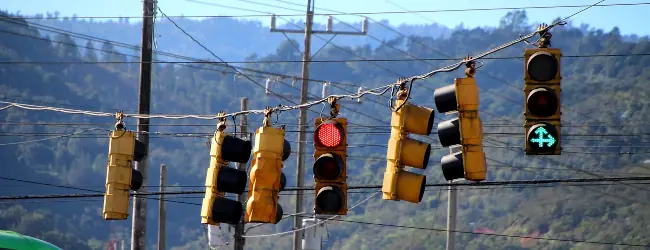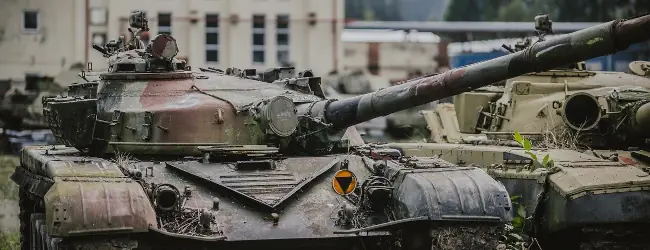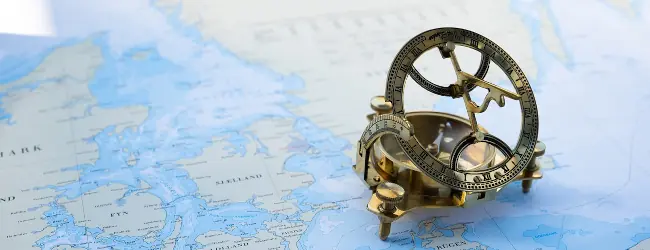In recent articles, I have talked about a historical perspective. Today, I will introduce another related mindset: living in a chaotic world.
How to distinguish our values
Sometimes, we confuse our values with those of others and want to reclaim our own ones. An inferiority complex and our inability to control emotions are typical examples.
The first example is an inferiority complex. It drives us to ignore our individuality and compete with others in the same area. It makes us feel that if we don’t gain social status, we are worthless. Even though we don’t like the activity, we fear being looked down upon and force ourselves to win socially.

The other example is an inability to control our emotions. We have a mental duality that allows us to balance our behaviors. Empathy and logical sense could be the duality if we are empathic and creative. Empathy multiplies emotions, and logical sense limits them. They balance our behaviors and state of mind.
However, if we are confused about values and cannot use logical sense to limit emotions, we lose control of them. People who suffer from empathy tend to be in this state. In this state, we cannot judge who doesn’t need our help. In other words, we cannot abandon those who don’t need our help.
To make decisions based on our personalities
That is why we need to reclaim our values. We want to make decisions based on our personalities. That gives us mental stability and allows us to decide calmly.
However, we sometimes don’t distinguish what our honest minds are.

Today, I will introduce a new mindset that allows us to reclaim our values. It is a concept of living in chaos. This might show us the direction of life.
A chaotic perspective that gives us freedom
If we are empathic and creative, supposing we live in a chaotic world would calm us down because we can use our senses freely. In other words, empathy and creativity are talents for dealing with chaotic situations.
An example will make it easier to understand. Assume two countries are at war. One southern country invaded one northern country, deprived of some areas of its territory, and committed genocide.

This situation illustrates human duality well. Justice is only one side of human duality.
An example of territorial claims
For example, the northern country claims, “This is our territory; we have lived here for a long time; the invasion is illegal and unforgivable!”
On the other hand, the southern country claims justice: “This area was originally our land, and we just took it back!” They show grounds with the history dating back to 300 years ago.
Both countries’ arguments are meaningless because they are just claiming legitimacy based on a convenient time. The northern country focuses on only recent years. On the other hand, the southern country insists on only the point of 300 years ago.

If we can look at it from a long-term historical perspective, the area did not belong to either country. For example, there was no human country 10,000 years ago.
That tells us that their justice is nonsense. This is one of the chaotic aspects of this world.
An example of an invasion
Let me give another chaotic example of the same situation. Some might claim invasion is evil. However, it is also a one-sided perspective.
Human development is also an invasion. Humans were born on the African continent 300,000 years ago and began to migrate all over the world 120,000 years ago.

It means humans ‘invaded’ other areas and developed. Humans have driven away other species.
If we deny invasion, it indicates we are denying ourselves. In other words, invasion is part of nature.
An example of being a victim
Some might accuse genocide. They insist casualties are innocent civilians and victims. They have done nothing wrong. However, it is also a one-sided perspective.
There are no good innocent citizens who have done nothing wrong. Doing nothing when the enemy is invading with weapons would be a fatal mistake.
In other words, they believe being victims will solve the problems. It would be ignorance if they didn’t know how to deal with the crisis. It would be arrogance if they believed they could deal with the crisis by being innocent.

This world has a duality, which means this world has a chaotic aspect. There is no innocent life as long as we eat other lives. Not only meat but also grains and vegetables are lives. A person who can say that he is completely good is arrogant.
I never say genocide is good. However, that is one side of humanity. In other words, if we ignore it, genocide or any human tragedy will happen. If unnaturally suppressed, it will rebound significantly later. That is the law of nature.
They are the examples of a chaotic aspect of this world.
The perspective that frees us from social values
Historical perspective reminds us of that. Understanding mental duality and the concept of ‘we don’t know which is good or bad’ would help as well. They are all the same thing. Comprehending it tells us we can live freely at our own risk.
Considering our mental duality sometimes solves our problems. If we are in trouble with high empathy, relying on the other aspect—logical sense—would help us. It would tell us we don’t have to save all humanity and who to abandon. That gives us mental calmness and healthy improvement.

Humans are developing while living with duality. It is chaotic.
Although it doesn’t tell us a simple answer, we can create new ones that suit us. This mindset would calm us if we were empathic and creative.
Conclusion
That is the perspective that allows us to reclaim our values.
This world has duality. We can understand it from the chaotic aspects instead of pursuing a right, simple answer.
This perspective might show us the direction of life.
Thank you for reading this article. I hope to see you in the next one.


